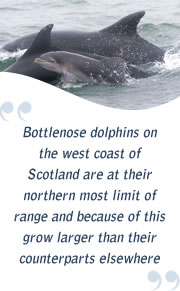Sightings Index
- Community Sightings Network
- Watching Cetaceans
- Report a Sighting Online
- Identification Tips
- Recent Sightings Table
- Monthly Sightings Reports
- November 2016
- October 2016
- September 2016
- August 2016
- July 2016
- June 2016
- May 2016
- April 2016
- Winter/Spring 2016
- October 2015
- September 2015
- August 2015
- July 2015
- June 2015
- May 2015
- April 2015
- March 2015
- Winter-Spring 2015
- November 2014
- October 2014
- September 2014
- August 2014
- July 2014
- June 2014
- Winter 2013/2014
- November 2013
- October 2013
- September 2013
- August 2013
- July 2013
- June 2013
- May 2013
- April 2013
- 2012 Sightings Summary
- October 2012
- September 2012
- August 2012
- July 2012
- June 2012
- May 2012
- April 2012
- March 2012
- Winter 2011/12
- 2011 Sightings and Strandings Summary
- November 2011
- October 2011
- September 2011
- August 2011
- July 2011
- June 2011
- May 2011
- April 2011
- Winter 2010/11
- September 2010
- August 2010
- July 2010
- June 2010
- May 2010
- April 2010
- March 2010
- Winter 2009/10
- September 2009
- August 2009
- July 2009
- June 2009
- May 2009
- April 2009
- March 2009
- February 2009
- January 2009
- December 2008
- November 2008
- October 2008
- September 2008
- August 2008
- July 2008
- June 2008
- May 2008
- April 2008
- March 2008
- Strandings


Monthly Sightings Reports
HWDT’s Community Sightings Network encourages residents, local wildlife operators and visitors to the area to report their sightings of whales, dolphins and porpoises to HWDT. This information is important because it contributes to our understanding of where and when particular species occur. Report your sighting HERE.
Each month HWDT publishes a summary report of the sightings recorded via our Community Sightings Network. In summer we receive the greatest number of sightings while winter is a quiet time. This is partly due to the number of species present but also reflects the sea state and number of people on the water watching for whales, dolphins and porpoises. In winter, fewer people are watching and the sea state more frequently makes sightings difficult, or even impossible. Also non-resident species have migrated for the winter. At this time of year HWDT receives more strandings reports than at other time as storms can wash animals ashore. These seasonal variations will be reflected in our reports.
Select the monthly report you wish to view from the panel on the left of this page.
September 2016
During September, 10 different species were encountered, with 130 sightings reported and a total of 994 individual animals. The most commonly reported species was the harbour porpoise, with 47 records submitted, totalling 130 individual animals. These records came in from across the region, with 77% of records submitted on our website corresponding to sightings from boats and most frequently ferries. Ferries are a great platform to experience cetaceans, so don’t forget your binoculars when you are out island hopping this Autumn.
Bottlenose dolphins are coastal species and frequently seen hugging the complex coastline as they travel around the Hebrides. This behaviour is reflected in the high number of sightings of bottlenose dolphins from land this month, with 86% of sightings experienced from solid ground. In total 109 bottlenose dolphins were seen over a total of 15 different sightings. Thanks to photos sent in by the community, HWDT hopes to compare these animal’s dorsal fins to our catalogue this winter, and hopefully find some matches, enabling us to get a better idea of their movements. This will be achieved with the help of our new Photo Identification Volunteer, Lynsey Bland.
Basking sharks were also sighted from land this month, with a total of 6 reports, of 7 individuals. One of these sharks, was even seen from the comfort of a coach tour, which highlights how close they can come into land whilst feeding. Since last month, there has also been a shift in the distribution of the sharks, based on the data received from the community, with more sightings being reported around Arran and Bute.
Our seasonal visitors including minke whales and common dolphins are currently still around, with a total of 21 sightings of minke whales (28 individuals) and 29 sightings of common dolphins (669 individuals). Again, the majority of these sightings (86% and 76% respectively) were reported from on the water, this time with motorboats being an important platform of opportunity. We also had one report of two killer whales off Canna and the West of Skye, courtesy of local fishermen, Gordon Mackinnon and Ritchie Simpson. One of these individuals was positively identified as John Coe, from the West Coast Community pod, marking the 10th confirmed sighting of him this year!
Finally, the other species reported to us, included one report of Risso’s Dolphins (7 animals) from Tiumpan Head on Lewis, another report of a sunfish, and one report of 12 long finned pilot whales off the Butt of Lewis.
Thanks to everyone who reported sightings to us this past month, your help is both very useful and greatly appreciated, if you spot anything in October, please let us know!
To see a map of the sightings from 1 to 30 September 2016, click here





